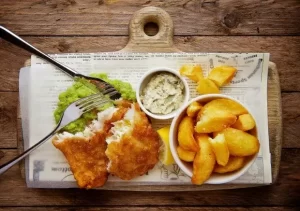
In the pursuit of a healthy body and weight management, it is essential to recognize the significance of staying hydrated. Drinking water not only aids in weight loss but also plays a pivotal role in weight gain strategies. This comprehensive guide explores the best time to drink water for weight gain and how incorporating this practice into your daily routine can enhance your health and support your weight gain goals. Let’s dive in!
Best Time to Drink Water For Weight Gain
Staying well-hydrated is crucial for maintaining a balanced body, especially during weight gain efforts. Incorporating the right timing for water consumption can maximize the benefits of this natural resource. Here’s a detailed breakdown of the best times to drink water for weight gain:
1. Hydrate Before Meals
Drinking a glass of water around 30 minutes before meals can aid in appetite control and portion management. This pre-meal hydration helps you feel fuller, preventing overeating during meals and supporting your weight gain efforts.
2. Upon Waking Up
Kickstart your day by hydrating your body as soon as you wake up. Drinking a glass of water on an empty stomach not only jumpstarts your metabolism but also prepares your body for optimal nutrient absorption throughout the day.
3. Between Meals
Ensure you drink water between meals to maintain hydration levels and support digestion. Sip water throughout the day to keep your body nourished and promote efficient nutrient distribution.
4. During Exercise
Stay well-hydrated during exercise sessions to support muscle growth and recovery. Proper hydration during workouts optimizes your performance, allowing you to engage in more intense workouts to promote weight gain.
5. Before Bedtime
Hydrate your body before bedtime to avoid dehydration during the night. Adequate hydration during sleep supports your body’s natural repair processes, crucial for muscle development during weight gain.
6. When Feeling Thirsty
Listening to your body is essential. Drink water whenever you feel thirsty, as it’s a clear sign that your body needs hydration. Keeping a water bottle with you at all times can help ensure you meet your daily water intake goals.
7. Post-Meal Hydration
While it’s essential to hydrate before meals, drinking water after meals can also aid in digestion and promote a feeling of fullness, reducing the temptation to snack excessively between meals.
Importance of Hydration for Weight Gain
Hydration plays a vital role in supporting weight gain efforts. Let’s explore why staying adequately hydrated is crucial for achieving your weight gain goals:
8. Enhances Nutrient Absorption
Drinking water helps break down nutrients in food, enabling better absorption of essential vitamins and minerals that are vital for muscle growth and overall health.
9. Optimizes Digestion
A well-hydrated digestive system functions more efficiently, ensuring that the nutrients from the food you consume are absorbed and utilized effectively.
10. Curbs Overeating
Sometimes, the body may interpret thirst as hunger, leading to overeating. Staying hydrated reduces the chances of mistaking thirst for hunger, preventing unnecessary calorie intake.
11. Supports Muscle Growth
Proper hydration is crucial for protein synthesis, a key process in muscle repair and growth. Hydrated muscles are less likely to experience cramping and can recover faster after workouts, promoting weight gain.
12. Boosts Energy Levels
Water is essential for maintaining energy levels during physical activities. By staying hydrated, you can perform better during workouts and other physical tasks, contributing to your weight gain journey.
13. Regulates Body Temperature
Water helps regulate body temperature during intense physical activities. Proper hydration prevents overheating, allowing you to engage in longer and more intense workouts to build muscle and gain weight.
14. Flushes Out Toxins
A well-hydrated body efficiently flushes out toxins through urine and sweat, promoting overall health and supporting weight gain efforts.
Frequently Asked Questions (FAQs)
Q: Is drinking water during meals harmful for weight gain?
A: No, drinking water during meals is not harmful to weight gain. In fact, sipping water during meals can aid in digestion and prevent overeating, supporting your weight gain goals.
Q: Can I drink other beverages instead of water for weight gain?
A: While water is the best hydrating option, other beverages like milk and natural fruit juices can also contribute to your daily water intake. However, be mindful of added sugars and calories in certain beverages.
Q: How much water should I drink daily for weight gain?
A: The recommended daily water intake varies depending on factors like age, weight, and activity level. As a general guideline, aim for at least 8-10 cups (64-80 ounces) of water per day to support your weight gain journey.
Q: Can dehydration hinder weight gain?
A: Yes, dehydration can hinder weight gain as it negatively impacts nutrient absorption, muscle recovery, and overall bodily functions. Ensure you stay well-hydrated to optimize your weight gain efforts.
Q: Does drinking water at specific times of the day matter for weight gain?
A: Yes, drinking water at specific times of the day can enhance the benefits of hydration for weight gain. Hydrating before meals, during exercise, and upon waking up are particularly beneficial.
Q: Can water intake help build muscle mass?
A: Yes, water intake is essential for muscle building. Hydration supports protein synthesis, aids in muscle recovery, and prevents muscle cramps, facilitating muscle growth during weight gain.
Conclusion
Incorporating the best time to drink water for weight gain into your daily routine can significantly impact your overall health and weight management journey. Hydration supports nutrient absorption, digestion, and muscle growth, all of which are crucial for achieving your weight gain goals. Remember to hydrate before meals, during exercise, and throughout the day, and listen to your body’s thirst signals. With the right approach to hydration, you can optimize your weight gain efforts and improve your overall well-being.








